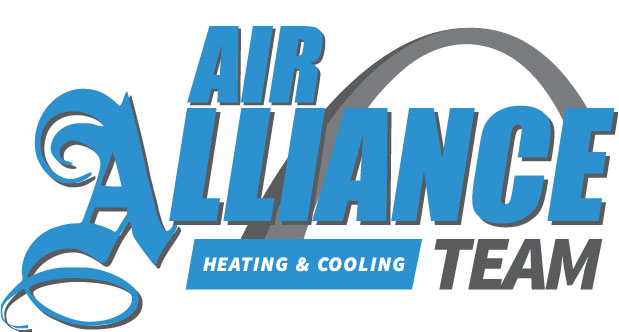
If you’re shopping for an air purifier, you could be noticing that some kinds are producing a lot of claims. And some of those claims might seem too good to be true. So, it’s only natural that you could be wondering are air purifiers a waste of money.
They’re worthwhile, according to the EPA, as they’re a fantastic method to enhance your Ballwin and St. Charles house’s indoor air quality. Today’s homes are tightly sealed and thoroughly insulated, which is excellent for energy efficiency, but not so excellent for indoor air quality.
Because modern homes don’t naturally allow in as much outdoor air as old homes, contaminants like dust, pet dander and cleaning products can accumulate in your home. The outcome? Air that’s more polluted than the outdoors, which is bad news if you struggle with allergies, asthma or are susceptible to respiratory irritation.
Our indoor air quality pros at Air Alliance Team can help you cut through the clutter and choose the best home air purifier. Just call us at 636-206-4584 and we’ll be happy to provide support. Meanwhile, discover more about how air purifiers clean the air, their advantages and our advice to help you select the best air purifier.
How Does an Air Purification System Work?
Most home air purifiers use a fan to draw in air. Then, the air is pushed through one or more filters to collect pollutants before being sent out again.
These filters might have a charcoal filter, to remove odors, and a HEPA, or high efficiency particulate air, filter. A HEPA filter is at least 99.7% effective at catching microscopic particles as small as .3 microns, such as dust, pollen, mold and some bacteria.
An air purifier can be lightweight and used to filter one space. Or they can be installed inside your HVAC system, giving effective filtration for your complete residence.
The EPA says it’s important to know that air purifiers can’t remove all the contaminants from your home’s air. But when used along with an enhanced filter for your HVAC system, they can significantly decrease the amount of indoor air pollution.
4 Benefits of Air Purification
Getting an air purifier for your home can offer lots of great health perks. Here are just a few of them.
1. Reduces Allergy and Asthma Triggers
Air purifiers reduce contaminants in your house, such as some of these common triggers:
- Dust
- Pollen
- Mold
- Volatile organic compounds, such as cleaners, air fresheners and personal care products
2. Reduces Other Issues Linked to Poor Indoor Air Quality
Even if you or someone in your home doesn’t experience allergies or asthma, an air purifier can alleviate other troubles linked to low indoor air quality. These entail:
- Scratchy throat, eyes, nose or skin
- Headaches
- Sneezing and coughing
- Fatigue
- Dizziness
- Nausea
It can be hard to distinguish symptoms related to indoor air quality, as they can be linked to lots of other illnesses. However, if you’re aware that symptoms are better after you leave your residence, your indoor air quality is likely causing the issue.
3. Eliminates Odors
Lingering odors, including cigarette smoke or cooking smells, can be tricky to remove. If you having problems with removing persistent smells in your home, our professionals recommend purchasing an air purifier with a charcoal or activated carbon filter.
4. Can Reduce Your Chance of Becoming Sick
An air purifier can remove some bacteria and viruses under certain airflow conditions, keeping you and your household in good health even more so during colder months. To get complete advantage of this plus, our pros suggest a UV air purifier. Disinfecting ultraviolet light delivers an additional layer of defense against airborne pathogens.
Air Purification Systems to Stay Away From
You’re better off without some air purifiers. Here are a few features to stay away from when selecting a system for your residence:
- Produces ozone. Some air purifiers create ozone, which can aggravate your lungs. The EPA advises staying away from ozone air purifiers.
- Doesn’t use HEPA filters. For the best filtration, you’ll want a HEPA air purifier. Regarded as the gold standard for clean air, HEPA filters are used in many healthcare settings, including hospitals.
- Only purifies a single room. We recommend getting a whole-house air purifier, which purifies the air throughout your home. This style works alongside your home comfort system.
When you call the indoor air quality experts at Air Alliance Team, we make it simple to select the best air purifier for your residence. Reach us at 636-206-4584 to get started breathing healthier air right away!
